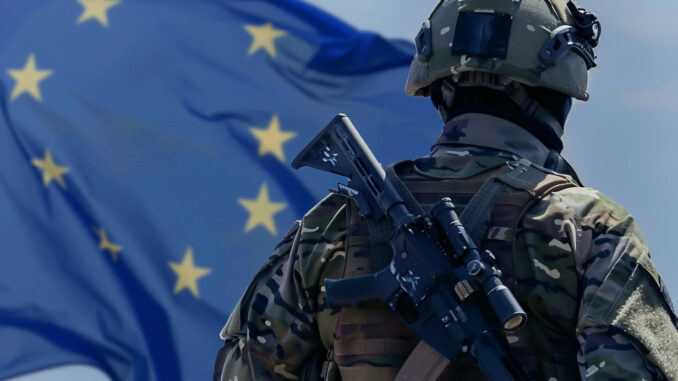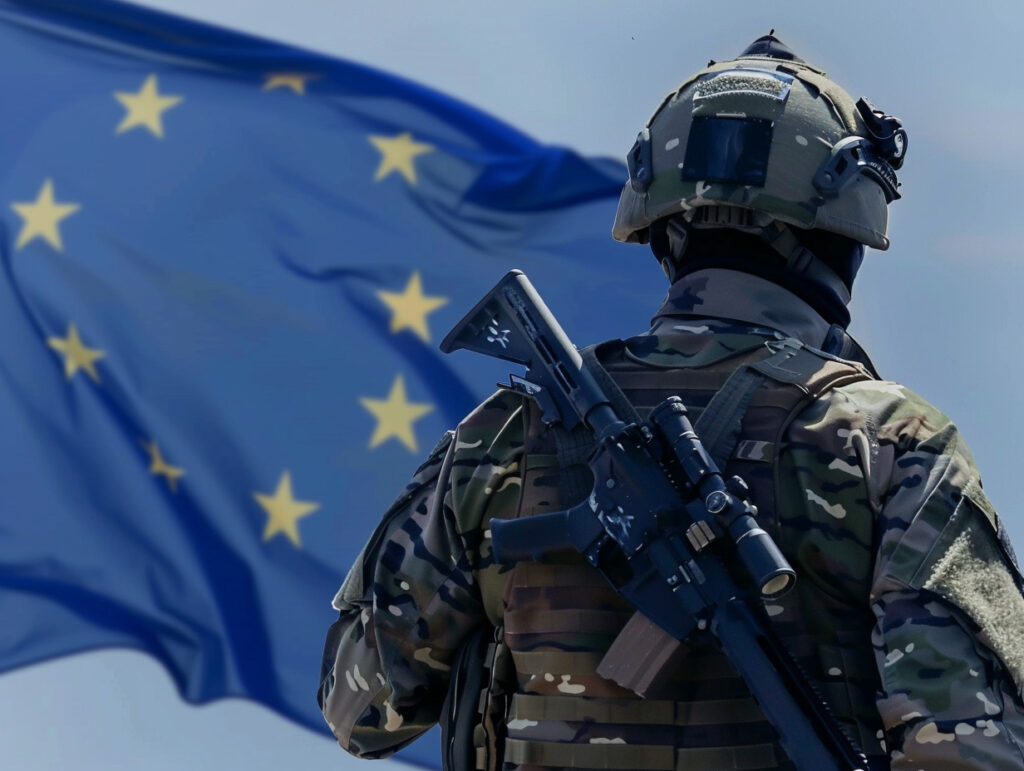
Italy is proposing to exclude defence spending from the EU’s Stability and Growth Pact, allowing more military investment. Analysis of the implications.
At the NATO summit, Italy proposed excluding defence spending from the EU’s Stability and Growth Pact (SGP). This initiative aims to allow countries to strengthen their military capabilities without violating EU fiscal rules, particularly important in the face of heightened tensions with Russia. While this flexibility may improve military preparedness, it raises concerns about budgetary discipline and long-term economic stability.
Excluding defence spending from EU limits: an Italian proposal
At the Nato Summit Defence Industry Forum on 9 July, Major General Enrico Credendino was asked about a proposal by Italian Defence Minister Guido Crosetto to exclude defence spending from the constraints of the EU’s Stability and Growth Pact (SGP). The GSP, introduced in 1997, requires EU countries to keep their budget deficits below 3% of GDP and their public debt below 60% of GDP. This Italian proposal, motivated by the need to invest more in military capabilities in the face of modern threats, could enable EU countries, particularly those under strong fiscal pressure, to strengthen their defence without compromising economic stability.
The reasons behind the proposal
Russia’s invasion of Ukraine has radically altered the defence posture of many European countries, including Italy. According to GlobalData’s “Italy Defense Market 2023-2028” report, Italy continues to invest in new military platforms and modernise its existing systems. This includes the acquisition of augmented systems for its mechanised brigades, the construction of new ships and the integration of the F-35 fighter, as well as participation in the next-generation Tempest programme. These investments are crucial in responding to emerging threats, but they also represent a significant financial burden.
Impact of the proposal on public finances
Allowing defence spending to fall outside the constraints of the GSP would provide EU countries with financial flexibility. However, it could also entail risks for budgetary discipline. The German Finance Minister, Christian Lindner, has expressed reservations about this, pointing out that the financial markets do not distinguish between reasons for indebtedness. Excessive debt can lead to economic instability, fuel inflation and reduce the sustainability of public finances. Thus, while the exclusion of defence spending from the GSP may meet strategic needs, it must be managed carefully to avoid negative long-term economic consequences.

Impact on European security and cooperation
If the Italian proposal is accepted, it could strengthen Europe’s collective defence capability. By allowing EU countries to devote more resources to defence without breaking fiscal rules, the EU could improve its preparedness against external threats. However, this would require greater coordination and cooperation between Member States to ensure that the additional funds are used effectively and to avoid any duplication of effort. The situation in Ukraine has already demonstrated the importance of military cooperation in Europe, and this proposal could be a further step towards a more integrated European defence.
Challenges and future prospects
Changing the GSP rules to exclude defence spending would require complex negotiations between EU Member States, which have varying fiscal and defence priorities. Some countries, committed to budgetary rigour, might oppose any measure that could weaken the EU fiscal framework. In addition, it would be crucial to establish monitoring and control mechanisms to ensure that the funds allocated to defence are spent efficiently and transparently.
Uniting against modern threats
The Italian proposal to exclude defence spending from the constraints of the EU’s GSP represents a bold initiative to strengthen Europe’s military capacity in the face of modern threats. If accepted, it could offer EU countries the financial flexibility to invest in their defence without compromising their economic stability. However, this proposal raises important questions about budgetary discipline and European cooperation, and would require careful implementation to avoid long-term negative consequences. The current situation in Ukraine underlines the urgency of improving Europe’s military preparedness, making this proposal particularly relevant.
War Wings Daily is an independant magazine.